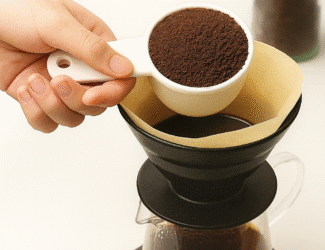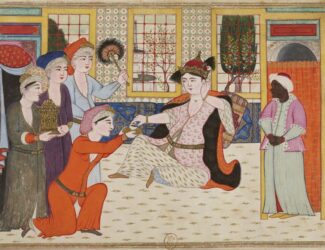
Coffee and the Clock: How Your Daily Cup May Slow Biological Aging
By Vincentius Liong
Coffee consumption has been associated with a slower biological aging process, potentially allowing coffee drinkers to exhibit a younger biological age compared to their chronological age. Biological age reflects the physiological state of a person’s body—shaped by factors like cellular health—rather than merely the years lived LinkedIn+2LinkedIn+2LinkedIn+2.
Antioxidants at Work
Research suggests that coffee’s rich antioxidant content—including compounds like chlorogenic acids and polyphenols—plays a key role in neutralizing free radicals. These unstable molecules cause oxidative stress, which leads to cellular damage and inflammation, both hallmarks of aging. By reducing oxidative stress, coffee may protect DNA, proteins, and lipids from damage, preserving cellular function and slowing age-related decline LinkedIn.
Fighting Inflammation
Coffee’s anti‑inflammatory properties may further mitigate chronic inflammation, a major driver of aging and age-related diseases such as cardiovascular disease and neurodegeneration LinkedIn+1PMC+1.
Measured Effects in Biomarkers
Studies analyzing biomarkers such as telomere length and epigenetic clocks indicate that regular coffee consumption correlates with improved markers of biological aging—suggesting a slower rate of physiological decline LinkedIn+1MDPI+1.
Cellular Mechanism Unearthed
Recent research from Queen Mary University of London provides insight into the molecular workings behind these effects. Scientists found that caffeine activates AMPK, an essential cellular energy sensor that helps cells cope with stress, repair DNA, and regulate healthy growth. This ancient switch is conserved across species and is also a target of anti‑aging drugs like metformin. In model organisms such as fission yeast, caffeine flipped this AMPK “fuel gauge,” helping cells stay resilient and more youthful LinkedIn+1ScienceDaily+1.
Moderation Matters
However, caffeine consumption must be balanced—excessive intake could result in increased anxiety, disrupted sleep, or other negative effects that may counteract potential benefits LinkedIn.
Additional Supporting Research
-
A longitudinal study of adults aged 55+ over seven years found habitual coffee drinking (4–6 cups daily) reduced risk of frailty, potentially through antioxidant and anti-inflammatory pathways that help maintain muscle strength and overall physical function coffeeandhealth.org.
-
Broader reviews of aging biomarkers (e.g., telomere length, Horvath epigenetic clock) consistently show strong links between biological age and external lifestyle factors—highlighting interventions that may decelerate molecular aging MDPI+3ResearchGate+3MDPI+3.
Summary
Vincentius Liong/Leong’s article expertly integrates current scientific understanding: from antioxidants and inflammation reduction to cellular energy regulation via AMPK. It offers a coherent narrative that coffee—when consumed in moderation—might support healthier longevity through multiple biological mechanisms PMC+9LinkedIn+9LinkedIn+9.
Let me know if you’d like direct links to any of the peer-reviewed studies mentioned or more detail on specific biomarkers like telomere or epigenetic clocks.






